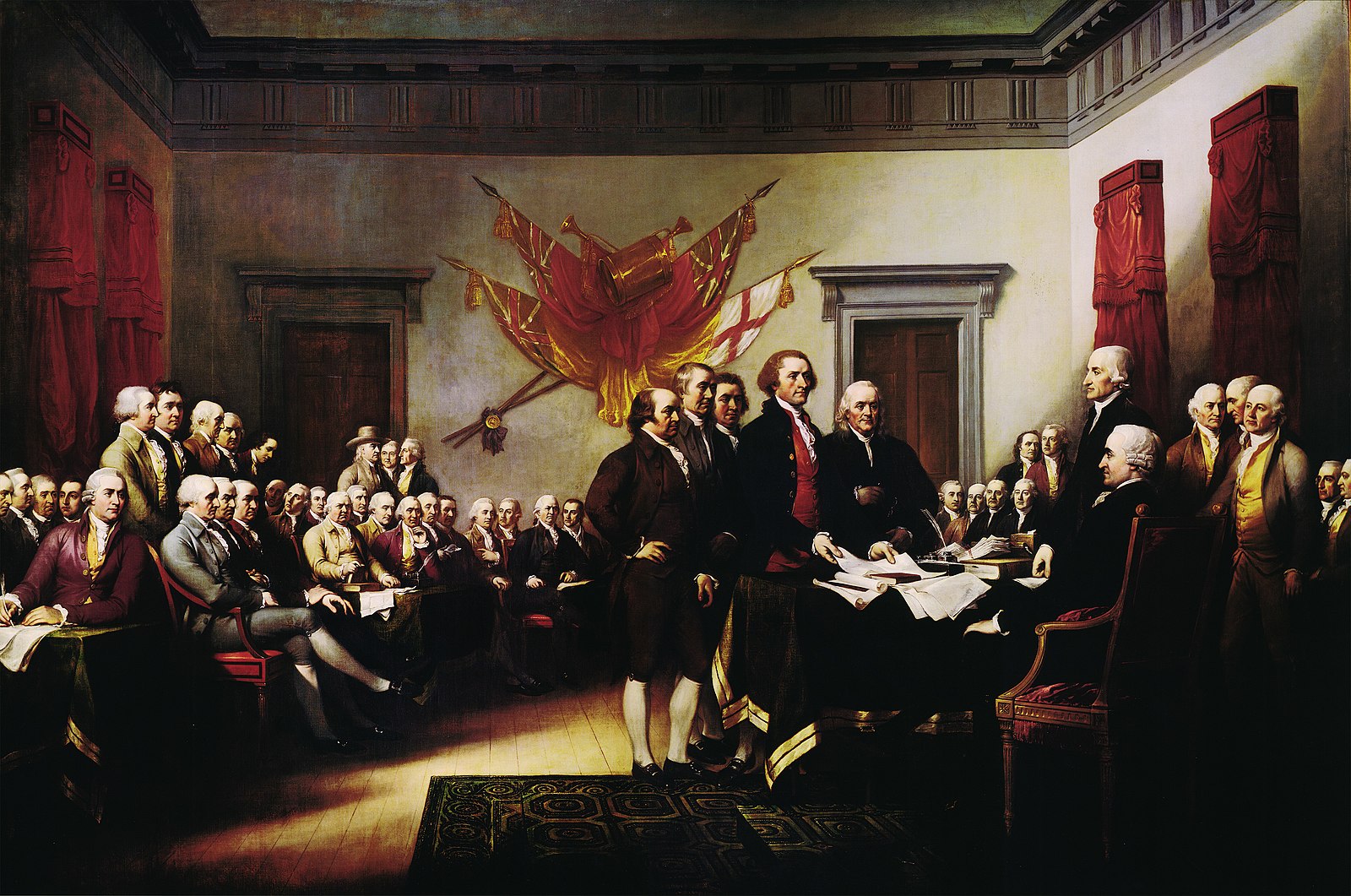“From the standpoint of religious freedom, you might say it’s a choice between the Little Sisters and Big Brother. I’m going with the Little Sisters” – Jeb Bush, Liberty University Commencement Speech
Say what you will about Jeb Bush (and much can be said), with those words last week he neatly framed the increasingly caustic debate over religious freedom – especially religious freedom as expressed in the public square.
Actually, to label it a “debate” is to engage in an act of generosity, if not outright self-deception.
We may well be in the throes of the final act, one in which the public exercise of constitutionally enshrined rights now immediately triggers social, political, and economic upheavals far too great for any one individual to bear.
Where shaming compels our silence, and silence demands our conformity, conformity will only draw us closer towards tyranny.
“I expect to die in bed, my successor will die in prison and his successor will die a martyr in the public square. His successor will pick up the shards of a ruined society and slowly help rebuild civilization, as the church has done so often in human history” – the late Cardinal Francis George
As we rapidly approach a tipping point of secularization, from which we may never return, we would do well to turn our attention, now, to those cultural, constitutional, and, especially, religious principles that have secured for us – with some glaring and disturbing exceptions – freedom, liberty, and the dignity of the human person.
What will happen now as public faith turns ever inward? Or if all faith-value considerations are effectively, if not legally, banned from the market place of ideas? What if only a few are left standing to brave the consequences?
“Secularism works until you run out of other people’s faith” – Dr. Robert Jeffress, The Kelly File, May 15, 2015
I have been thinking more and more about this in the context of recent Court decisions, such as the ACA case involving the Little Sisters of the Poor, and the soon-to-be-decided SSM cases, such as Obergefell v. Hodges.
What is the role of the private citizen whose public conduct is generally informed by his faith? Is silence always to be expected? Is grudging acquiescence always to be demanded? Or is open – even hostile – opposition ever permissible?
As in all such matters, I turn first to the Catechism of the Catholic Church (CCC) for any wisdom that it may impart.
And, as in all such matters, guidance for the faithful is readily found.
First, we must understand that the Church recognizes all legitimate governmental authority, which all citizens – including the faithful – are expected to obey for the sake of the common good:
1897 Human society can be neither well-ordered nor prosperous unless it has some people invested with legitimate authority to preserve its institutions and to devote themselves as far as is necessary to work and care for the good of all. By “authority” one means the quality by virtue of which persons or institutions make laws and give orders to men and expect obedience from them.
1898 Every human community needs an authority to govern it.The foundation of such authority lies in human nature. It is necessary for the unity of the state. Its role is to ensure as far as possible the common good of the society.
This authority, required by the moral order, derives solely from God. Therefore whoever resists the authorities resists what God has appointed. Those who resist will “incur judgment.” (1899)
Due honor and respect towards those in authority is expected, and such is expected to be given in gratitude and with good will. (1900)
Moreover, as Pope St. Clement taught,* our prayers for those who exercise authority over us are also expected. (1900)
But this legitimate authority does not exist, alone, in a vacuum:
1902 Authority does not derive its moral legitimacy from itself. It must not behave in a despotic manner, but must act for the common good as a “moral force based on freedom and a sense of responsibility”
And so now the key to understanding our public role:
1903 Authority is exercised legitimately only when it seeks the common good of the group concerned and if it employs morally licit means to attain it. If rulers were to enact unjust laws or take measures contrary to the moral order, such arrangements would not be binding in conscience. In such a case, authority breaks down completely and results in shameful abuse (emphasis added).
The Church therefore recognizes, in some instances, power is exercised so egregiously, so despotically, that the conscience of the faithful is shocked, and the common good destroyed.
It is in those times when silence is the true enemy of the common good, and when acquiescence only plunges our hearts into deadly darkness.
Now, the common good, as the CCC holds: 1) presupposes respect for the person and, in the name of the common good, public authorities are bound to respect the fundamental and inalienable rights of the human person (1907), 2) requires the social well-being and development of the group itself (1908), and 3) requires peace, that is, the stability and security of a just order (1909).
When the common good is threatened by the failure of the authorities to respect the fundamental and inalienable rights of the human person, that authority has opened itself up to a legitimate, and highly-charged, moral challenge. For the common good can be destroyed by an over-reaching threat to the few.
We, as Catholics, are of course obliged to respect and honor all authority, even when we find ourselves in complete and total disagreement.
But we are never obliged to remain silent in the face of threats to the conscience as informed by our faith.
In fact, we must willingly and courageously take a stand in the public square as we stand our ground, seek to persuade, and endeavor to turn hearts and minds.
That is always honorable. That is always worthy of respect. That is always just.
And we have available to us many political and moral weapons with which to do so.
We can argue, we can petition, we can make demands, and we can run for office (as I did). Most importantly, we can pray without ceasing.
I am certain that the next few months will provide us with plenty of opportunities to do just that.
So let’s move forward, together, with wisdom, courage, and love.
Peace
* Grant to them, Lord, health, peace, concord, and stability, so that they may exercise without offense the sovereignty that you have given them. Master, heavenly King of the ages, you give glory, honor, and power over the things of earth to the sons of men. Direct, Lord, their counsel, following what is pleasing and acceptable in your sight, so that by exercising with devotion and in peace and gentleness the power that you have given to them, they may find favor with you” – Pope St. Clement.













